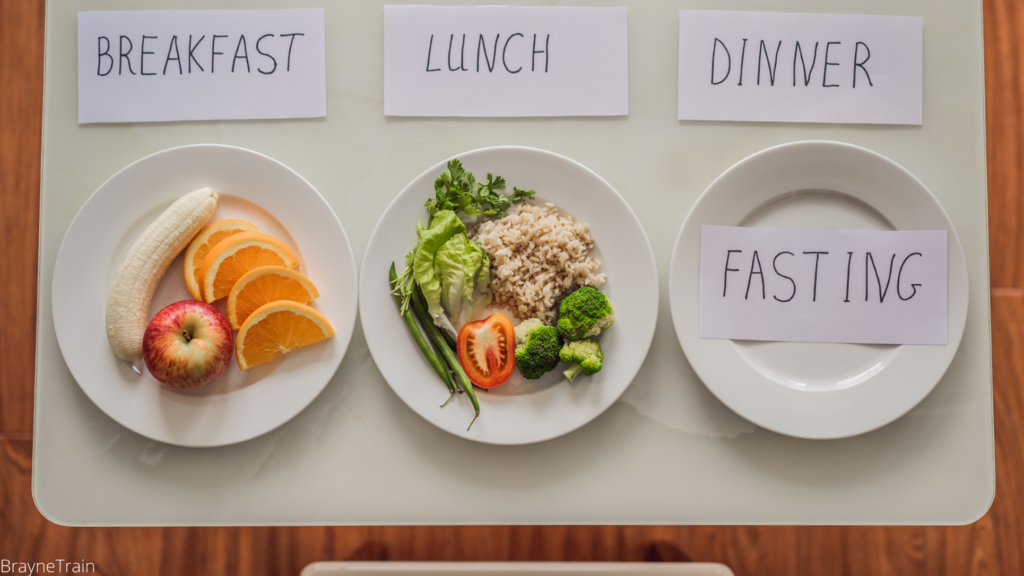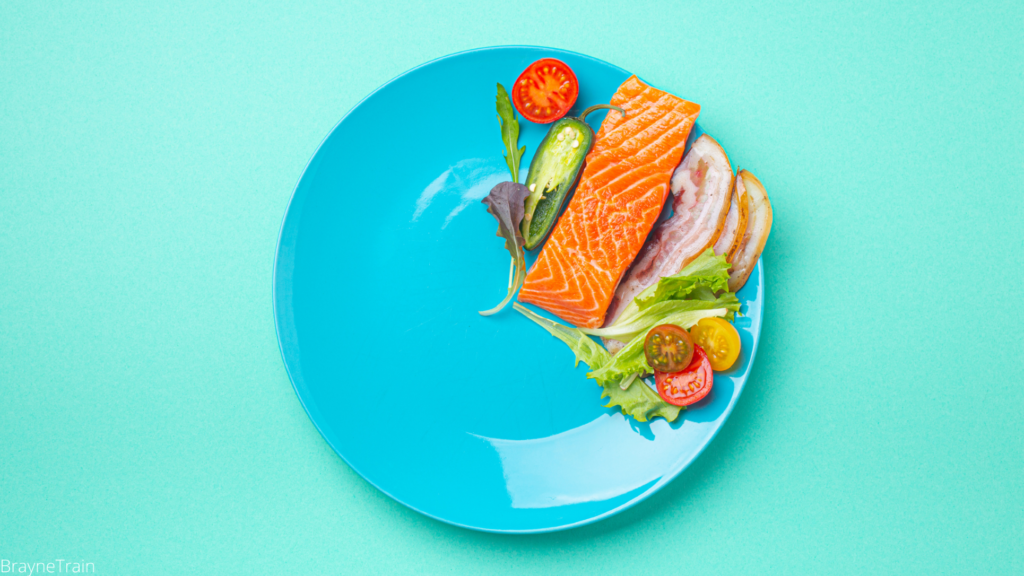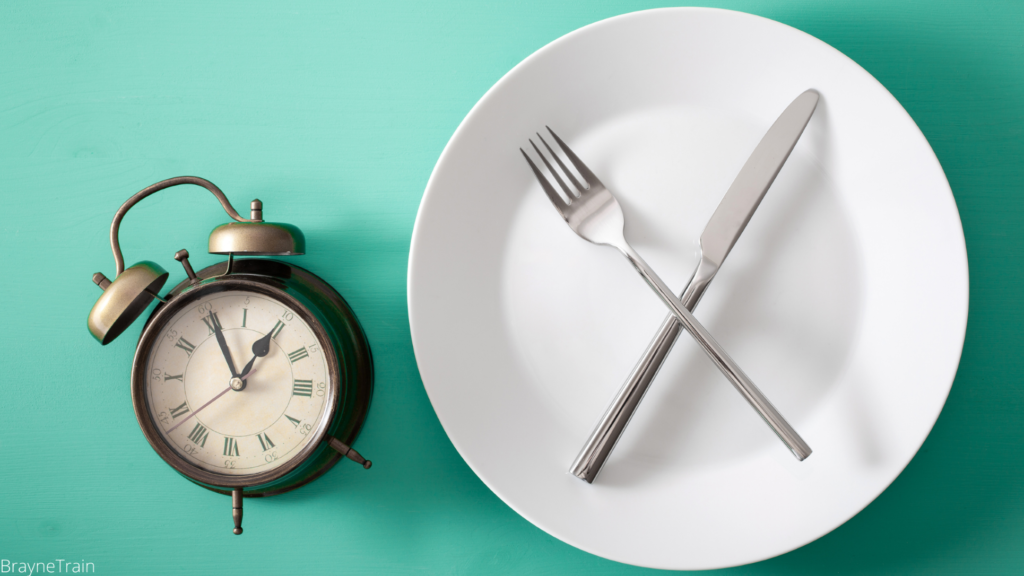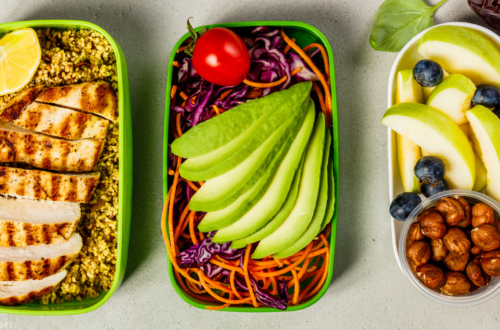
Intermittent Fasting; A Beginner’s Guide.
If you’re like most people, the word “fasting” probably conjures up images of deprivation and Hunger. But fasting doesn’t have to be about starvation and deprivation.
Fasting is the act of abstaining from food, voluntarily. It is a practice that has been around for centuries and is still widely practiced today.
Fasting is also a popular way to cleanse the body and reset your mind.
There are many different types of fastings, and they all can be beneficial for your health.
Most Commonly Asked Question :
How do you start Intermittent Fasting?
Start by fasting for 12 hours. Eat your meals in a 12-hour window. Gradually increase your fasting time to 14 and then 16 hours per day. The 16:8 or time-restricted fasting is the most popular intermittent fasting method in which you fast for 16 hours and eat during an 8-hour window.
Let’s take a closer look.
What is Intermittent Fasting?

Intermittent fasting is alternating periods of fasting and eating intentionally.
For example, in a 16:8 or time-restricted fasting, you fast for 16 hours and have an eating window of 8 hours.
Or you might fast for 24 hours, OMAD, One meal a day.
Intermittent fasting can be a great way to improve your health.
Intermittent Fasting can help you lose weight quickly.

Studies have shown intermittent fasting also improves your insulin sensitivity and reduces the risk of heart disease.
By giving your body a break from food, it starts tapping into its fat (ketosis) and begins burning off fat for energy.
The state of Ketosis is a powerful tool for regulating body weight and hormones.
By helping regulate hormones such as insulin and improving metabolism, intermittent fasting can promote sustainable weight loss and improved health.
What are 3 Types of Intermittent Fasting?

There are many forms of fasting, the top three and most popular forms of fasting include:
- The 16:8 fast: The fasting period lasts for 16 hours. The “eating window” is of 8 hours. This means you would fast for 16 hours and eat all of your meals within 8 hours.
- The OMAD: It stands for One Meal A Day. So what does that mean? It means exactly what it sounds like – you eat one meal per day. Your fasting period lasts for 23 hours.
- Generally, it’s not recommended to do OMAD more than 2-3 times per week, although many practice OMAD on a daily bases.
- Prolonged Fasting: Prolonged fasting is a fast in which you don’t eat food for an extended period of time, ranging from 24 hours to several days. It’s also known as extended fasting.
- Prolonged fasting should not be practiced too often. Once per month, or once every few months is recommended.
Can Everybody fast?
No, not everyone can or should fast.
Pregnant or breastfeeding women, anorexic or underweight individuals, or anyone with medical conditions should not fast unless advised or under the supervision of a medical doctor.
How to Start Fasting for Beginners:
- Week 1: Cut out all snacks for an entire week, eat three meals per day, and fast for 12 hours. Eat a healthy diet like keto or Mediterranean.
- Week 2: Increase your fasting time to 14 hours. (this step may take more time to accomplish, so take your time but be consistent).
- Do not snack in between meals. You can drink water, black coffee, or tea during fasts – be sure not to have any types of sweeteners.
- Week 3 & after Gradually increase your fasting time to 16 hours, and longer if desired. The ideal fasting time is 16-18 hours.
* Fun Fact: A study done at Boston University concluded water fasting for seven days decreased the chances of getting cancer by 70%.
How to Avoid Hunger During a Fast
Here are some great tips to help you stay satiated during your fast.
It’s essential to know that the longer you fast, the easier fasting becomes.
- Start the morning with a Black Cup of Coffee. Coffee suppresses Hunger.
- No creamers. Creamers break the fast.
- Drink Green Tea: Green tea help satiate you and lowers Hunger.
- Hydrate, hydrate, hydrate: Did I say hydrate? Drink plenty of water. Many times, our body mistakes the sensation of dehydration with Hunger, and drinking enough water prevents that from happening.
- Drink Yerba Mate: Yerba Mate is a herbal tea that helps decrease Hunger.
- A study in Journal Nutrients showed the intake of Yerba Mate 30 minutes before cardio Upregulated fatty acid oxidation. Meaning it helped the body use its fat for fuel, reducing Hunger. When the body uses its fat, less hunger occurs.
- Ginger: Add some ginger to your water or green tea.
- Cayenne pepper: add a small amount of cayenne pepper to your water, green tea, or coffee.
- Skip breakfast; Yes, you heard it right; skipping breakfast is okay. Skipping breakfast helps increase your fasting time, so make it a habit.
- Stay busy. Boredom can make you do crazy things, like reaching for food. Keep yourself busy with healthy activities and your fasting becomes much easier.
Bottom Line:
While intermittent fasting isn’t for everyone, it can be a great tool to help with weight loss and overall health. If you’re curious about giving it a try, consult your doctor first to make sure it’s the right choice for you, then give it a go. You may be surprised at how well this simple strategy works!
References:
Alkhatib, Ahmad, and Roisin Atcheson. 2017. “Yerba Maté (Ilex paraguariensis) Metabolic, Satiety, and Mood State Effects at Rest and during Prolonged Exercise” Nutrients 9, no. 8: 882. https://doi.org/10.3390/nu9080882
Schubert MM, Irwin C, Seay RF, Clarke HE, Allegro D, Desbrow B. Caffeine, coffee, and appetite control: a review. Int J Food Sci Nutr. 2017 Dec;68(8):901-912. doi: 10.1080/09637486.2017.1320537. Epub 2017 Apr 27. PMID: 28446037.
Ludy MJ, Moore GE, Mattes RD. The effects of capsaicin and capsiate on energy balance: critical review and meta-analyses of studies in humans. Chem Senses. 2012 Feb;37(2):103-21. doi: 10.1093/chemse/bjr100. Epub 2011 Oct 29. PMID: 22038945; PMCID: PMC3257466.
Mansour MS, Ni YM, Roberts AL, Kelleman M, Roychoudhury A, St-Onge MP. Ginger consumption enhances the thermic effect of food and promotes feelings of satiety without affecting metabolic and hormonal parameters in overweight men: a pilot study. Metabolism. 2012;61(10):1347-1352. doi:10.1016/j.metabol.2012.03.016



